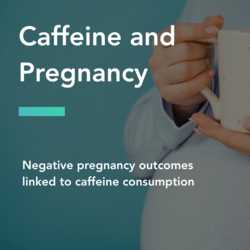Vegan Protein vs Animal Protein

Figure 1: Vegan Protein vs Animal Protein. A new study compares the effects of vegan proteins and animal proteins on health.
Fats and carbohydrates can be very controversial. Some people love them and some people hate them. Some doctors think that they’re good for you and other doctors think that they’re bad for you.
One thing health experts generally agree on is that proteins can be very healthy.
However, where you get your protein from matters. A new study out of Japan compared the benefits of animal proteins and plant proteins.
While we typically think of steak and chicken when it comes to proteins, some plants are also significant sources of protein. Falafel, which is made from chickpeas, and tofu, which is made from soybeans, are two great examples of plant proteins.
Source: Association of Animal and Plant Protein Intake With All-Cause and Cause-Specific Mortality
Vegan Protein & Heart Disease

Figure 2: Vegan Protein & Heart Disease. Eating more plant proteins was associated with a lower risk of heart disease.
Researchers followed over 70,000 Japanese volunteers for over 20 years. They found that in general, plant proteins were associated with better health while eating more animal proteins generally had no significant negative or positive effect.
In terms of heart disease, those who ate the most plant protein experienced a 27% reduction in their risk of disease compared to those who hardly ate any protein at all.
Source: Association of Animal and Plant Protein Intake With All-Cause and Cause-Specific Mortality
Vegan Protein & Life Expectancy

Figure 3: Vegan protein was associated with a lower risk of stroke and heart disease. Individuals who ate the most plant proteins had the longest life expectancy.
Researchers saw similar benefits with stroke.
These benefits contributed to a significantly longer life for those who ate the most plant protein, as shown by the mortality risk reduction.
Animal proteins, while not necessarily beneficial, were also not harmful either.
Neither plant nor animal proteins had any significant effect on cancer.
Vegan Protein & Cardiovascular Health

Figure 4: Vegan Protein & Cardiovascular Health. Above average consumption of vegan protein was associated with the greatest reductions in cardiovascular disease risk.
As shown in the chart above, the amount of plant protein that you eat matters. Individuals who ate above average amounts of plant protein all saw significant reductions in cardiovascular disease, including heart attack and stroke.
Recommendations

Figure 5: Vegan Protein Health Tips. Reduce red meat, try hummus and beans, and reduce your carb intake.
As with all similar studies, correlation does not imply causation. Based on the data above, researchers can conclude that those who eat more plant proteins have better health, But, we do not know whether plant protein themselves are causing this trend.
In general, eating more plant protein is probably going to be good for you. Chickpeas, beans, and peas are great sources of protein as well as fiber. Reducing the amount of red meat in your diet may reduce your risk of heart disease and cancer.
Source: Association of Animal and Plant Protein Intake With All-Cause and Cause-Specific Mortality













































